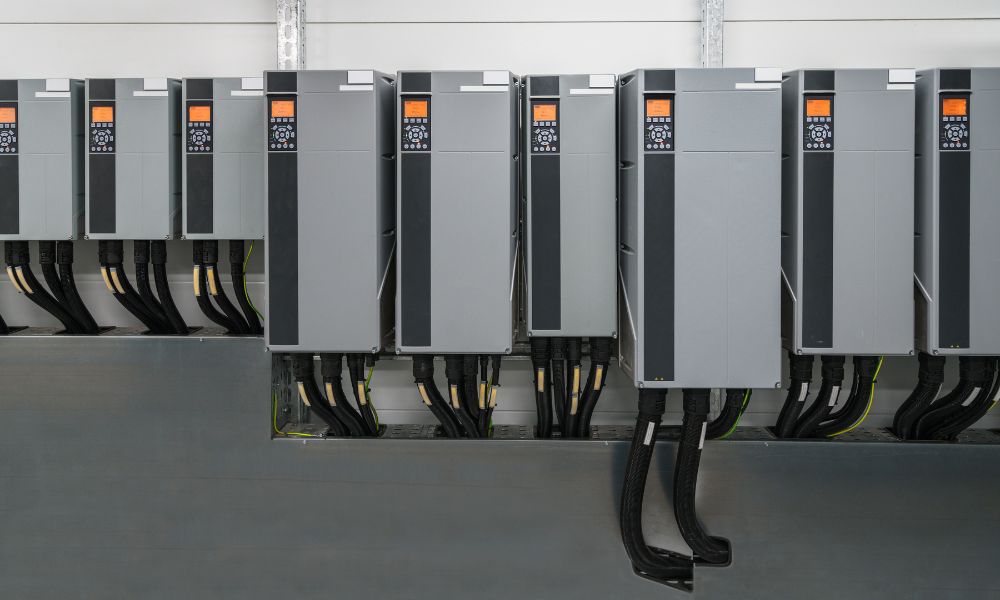Controlling electric motors has become essential for professionals in various industries. One solution is using a variable frequency drive (VFD). We will reveal the three basic types of variable frequency drives and provide an overview of their functions.
What Is a Variable Frequency Drive?
A variable frequency drive, also known as an adjustable frequency drive or an inverter, changes the frequency and voltage supplied to an electric motor. This feature optimizes the speed, torque, and performance of a motor, ultimately leading to energy efficiency.
1. Voltage-Source Inverter Drives
Voltage-source inverter (VSI) drives are the most common variable frequency drives in the market. They consist of a rectifier that converts AC to DC, a DC link, and an inverter that converts DC back to AC. The inverter section uses pulse width modulation (PWM) to control the frequency and voltage applied to the motor, resulting in precise control of the motor’s speed and torque.
The benefits of VSI drives include the following:
- Suitable for a wide range of motor applications
- Smooth control of motor speed and torque
- Efficient use of energy
2. Current-Source Inverter Drives
Current-source inverter (CSI) drives are the second of the three basic types of variable frequency drives. These drives employ a rectifier, a DC link, and an inverter. They also use field-effect transistors (FETs) that have a higher switching speed than the insulated-gate bipolar transistors (IGBTs) in VSI drives. This feature enables CSI drives to accommodate high-speed applications and yield faster dynamic responses.
Here are some benefits of CSI drives:
- Reduced harmonic distortion
- Rapid acceleration and deceleration
- Suitable for regenerative braking applications
- Enhanced dynamic control
3. Direct Torque Control Drives
Direct torque control (DTC) drives offer the highest level of control among the variable frequency drives. DTC technology monitors and controls motor torque and flux directly instead of operating through an intermediate variable frequency control stage. The result is increased accuracy, minimized torque ripple, and faster dynamic responses.
Some advantages of DTC drives include the following:
- Fast torque and flux control
- Superior motor control for complex applications
- Reduced harmonic distortion
- Improved energy efficiency
At Visicomm Industries, we are committed to providing our clients with high-quality industrial frequency converters and information on currents, drives, and other vital machinery and factors. Start improving your energy efficiency, process control, and dynamic response today! Contact us to learn more about how our variable frequency drives can benefit your operation.
